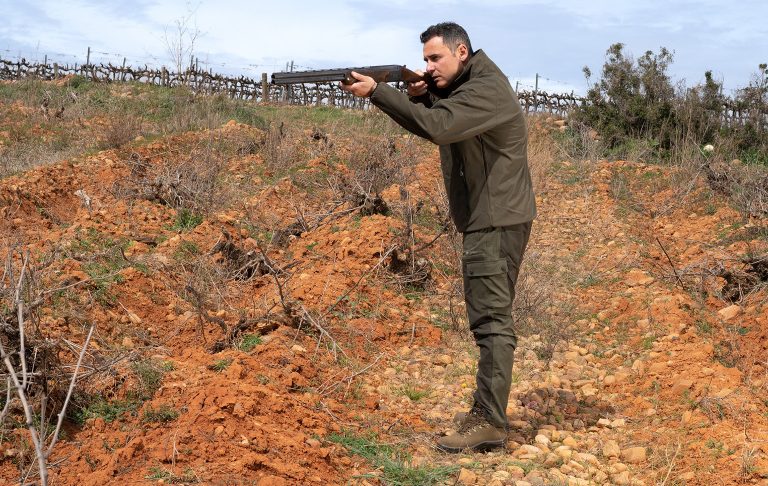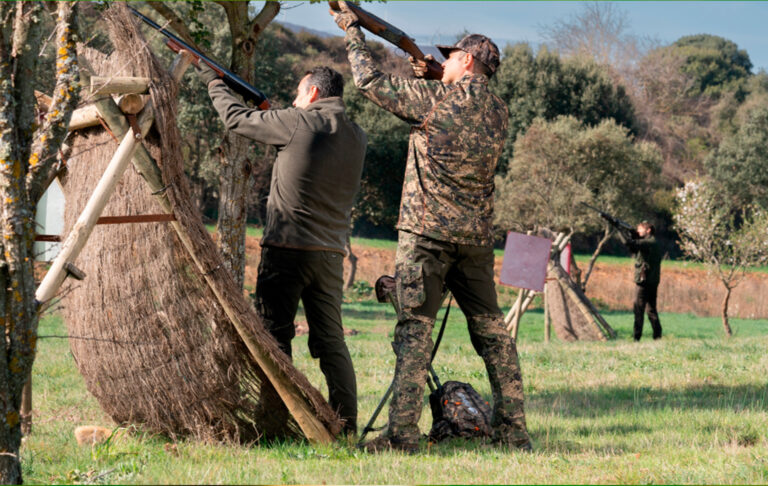Like any outdoor activity, hunting carries certain risks, including exposure to zoonotic diseases, i.e. those that can be transmitted from animals to humans.
Knowing how to identify and prevent these diseases is crucial to ensure a safe and healthy hunting experience. In this post, we will explore some of the most common diseases transmitted during our hunting trips and the preventative measures that can be taken.

LYME DISEASE
Cause: Transmitted by ticks infected with Borrelia burgdorferi bacteria.
Symptoms: Include bull’s-eye rash, fever, headache, fatigue and muscle aches.
Prevention: Wear light-coloured clothing to spot ticks easily, apply insect repellent with DEET, and check body and clothing for ticks after hunting. If a tick is found, remove it immediately with tweezers.
TULAREMIA
Cause: Bacterial infection caused by Francisella tularensis, which can be transmitted by handling infected animals, especially rabbits and hares.
Symptoms: High fever, skin ulcers, swollen lymph nodes and respiratory symptoms.
Prevention: Wear gloves when handling animals and make sure game meat is thoroughly cooked. Avoid drinking water from untreated natural sources and wear protective clothing to minimise contact with infected animals.
BRUCELLOSIS
Cause: Bacteria of the genus Brucella transmitted through contact with body fluids of infected animals, especially wild pigs and deer.
Symptoms: Recurrent fever, night sweats, fatigue, muscle and joint pain.
Prevention: Wear gloves and protective clothing when handling animals, especially during skinning and meat processing. Cook game meat to an appropriate temperature to kill the bacteria.
TRICHINOSIS
Cause: ‘Trichinella’ parasite found in the meat of infected animals, such as wild pigs and bears.
Symptoms: Nausea, diarrhoea, vomiting, fever, and muscle aches.
Prevention: Freeze game meat for several weeks before consumption and cook to an internal temperature of at least 71°C (160°F) to kill the parasites.
GENERAL PREVENTION MEASURES
1. Personal hygiene
Wash hands and work surfaces with soap and water after handling game meat. Use disinfectants and keep hunting equipment clean and well maintained.
2. Field Care
Avoid contact with sick animals or animals showing unusual signs. Do not hunt in areas where diseases are reported to be present in wildlife.
3. Safe Meat Processing
When skinning and eviscerating, wear gloves and avoid cutting or puncturing the animal’s intestine to minimise the risk of exposure to bacteria and parasites. Ensure that meat is kept refrigerated until it can be properly processed.
4. Vaccination and Treatmento
Consider vaccination against diseases common in your area and consult a physician immediately if symptoms occur after hunting. Inform the physician of potential exposure to zoonotic diseases for appropriate treatment.
Hunting can be a safe and healthy activity if proper precautions are taken to prevent wildlife-borne diseases. Education about risks and preventive measures is essential to protect the health of hunters and their communities. By following responsible hunting practices and staying informed about zoonotic diseases, hunters can enjoy their passion while minimising risks to their health.






